Five Pulp Favorites—And Five Literary Greats for Ballast
There’s some commercial fiction you shouldn’t feel ashamed to read on the subway … but just in case, we’ve included a few highbrow favorites to
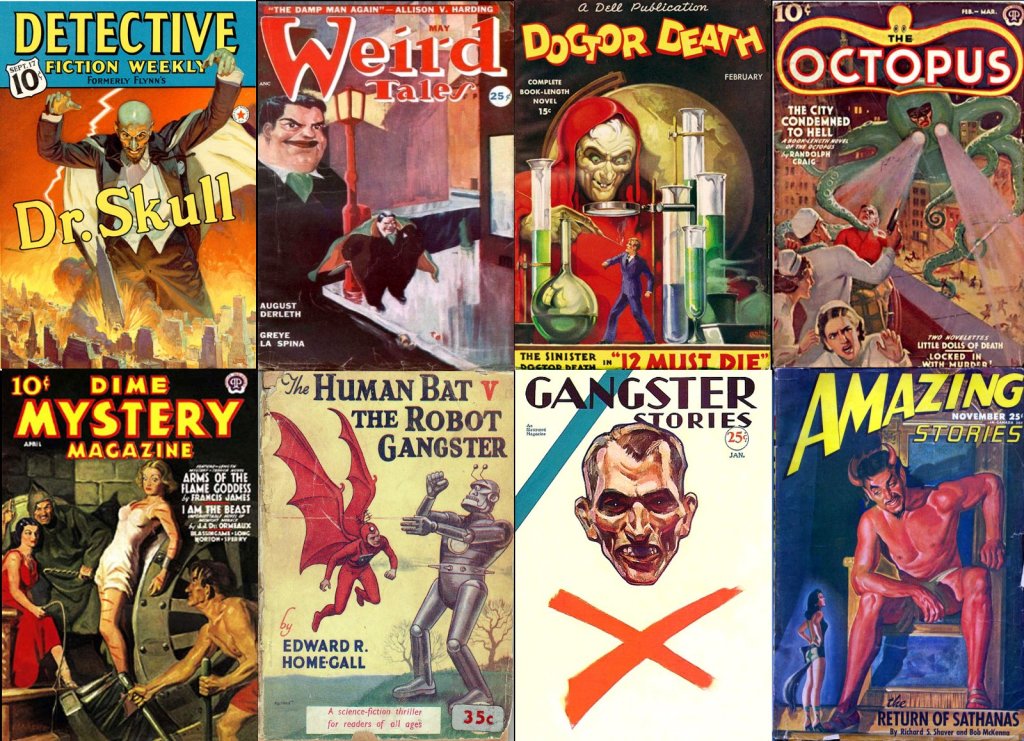
Sensational v. Snooty: the brawl between commercial and literary fiction continues. We may loudly declare Moby-Dick to be our favorite novel, but deep down we know the truth: we stopped reading at the part about rope weaving. Our copy of Gone Girl, on the other hand, is in tatters because the whole family tore through it in days. Yet why choose sides? Whet your appetite with some of our pulp favorites and their highfalutin literary cousins.
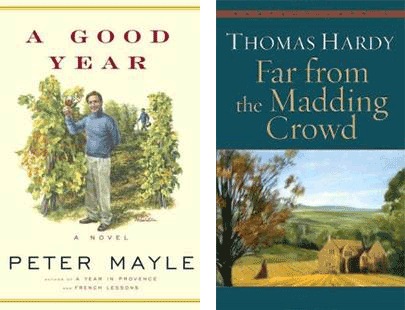
A Good Year by Peter Mayle
Max Skinner abandons London for Provence, where he’s just inherited his uncle’s old stone estate. Remembering his childhood vacations in France, Skinner roams through the sun-warmed vineyards and shady allées in a post-England trance. Even the points of conflict—a rival Californian with inheritance claims, wine that tastes like jus de chaussette, a beguiling Frenchwoman with a few tricks up her sleeve—are softened by the languid sense of a long summer idyll.
Pair this with Thomas Hardy’s Far From the Madding Crowd. Our heroine, Bathsheba Everdene, inherits her uncle’s country estate in the south of England, but rather than bask in the sun and nibble on fromage, she must learn to run the farm while navigating the loving embraces of a soldier, a gentleman, and a shepherd. Dashed fortunes, vengeful gunshots, and of course, broken hearts prove that this is not, in Thomas Gray’s words, “the cool sequester’d vale of life.”
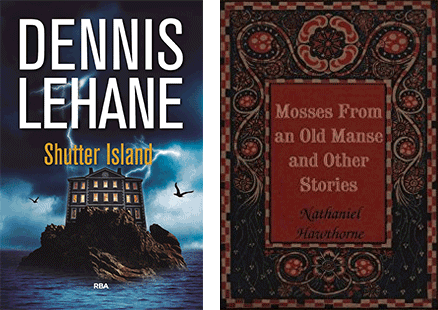
Shutter Island by Dennis Lehane
The secret to comedy is timing. The secret to suspense is … well, leave that to the two U.S. Marshals sent to find an escaped patient … from a federal institution for the criminally insane … on an island … during a hurricane. Set aside a weekend to race through the story—as you uncover twist after twist.
Pair with Nathaniel Hawthorne’s “Young Goodman Brown.” Also set in Massachusetts, this short story—from the collection Mosses From an Old Manse—roots out the secrets behind the starched linens of a Puritan community. Poor Goodman Brown is thrown into a mind-boggling dance between nightmares and reality: there’s a forest … a devil … and possibly a wicked wife named Faith.
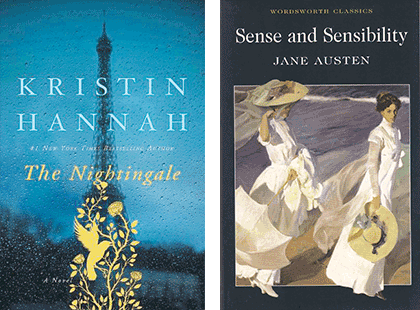
The Nightingale by Kristin Hannah
Separated by age and distance, two sisters must adapt to Nazi-occupied France in their own way—Vianne begins to shelter Jewish children in her home, while Isabelle joins the Resistance and helps Allied pilots escape to Spain. Based on a true story, this is the women’s side of the war—fought not only with guns and brawn but also through subterfuge and perseverance.
Pair with Jane Austen’s Sense and Sensibility. Across the English Channel, the Dashwood sisters must use wit and charm to secure their own fortunes after their father dies and primogeniture leaves them in penury. Both rational and passionate, Austen’s novel was a palliative for shell-shocked soldiers of the First and Second World Wars. Even Winston Churchill took solace in Austen’s words as he sought to preserve the England she depicted.
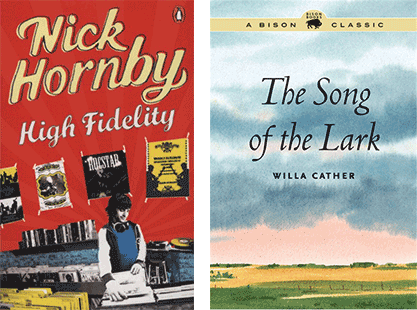
High Fidelity by Nick Hornby
Including High Fidelity on a “top-five” list was too good to pass up. Though in the film version, John Cusack and Jack Black cavort around Chicago, in Nick Hornby’s original novel, Rob Fleming is a London record shop owner compiling a desolate list of his own: his top-five most memorable breakups. Queue up this playlist of all 50 songs used in the film, and get ready to have your own heart broken—tunefully, of course.
Pair with Willa Cather’s Song of the Lark. “‘I only want impossible things,’ she said roughly. ‘The others don’t interest me.’” So our heroine, Thea Kronborg, leaves the Colorado prairie for good, intent on following her musical dreams. Soon enough, she becomes an opera star, singing her way across America and Europe. Yet sadness and frustration lap at her ambitions, something holding her back even as she pushes on toward the impossible.
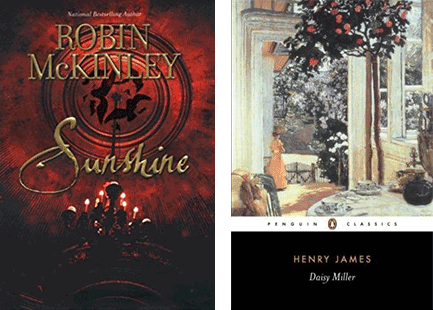
Sunshine by Robin McKinley
Step aside, Anne Rice: our favorite vampire novel is by Robin McKinley, queen of the darkly reimagined fairytale for adults (Deerskin, Spindle’s End, Rose Daughter) and the fantasy novels we devoured in our childhood (The Blue Sword, The Hero and the Crown, The Outlaws of Sherwood). A baker in a post-apocalyptic world finds herself on the wrong side of a pack of vampires, who kidnap her as bait for their rival. Gripping—and funny, too—the novel dodges familiar tropes and lands in an unexpected, magical place.
Pair with Henry James’s Daisy Miller. In James’s long story—a novella about a young woman, not a portrait of a lady—a metaphorical vampire is on the loose. Our protagonist, Mr. Winterbourne, plods toward a cold doom, but on the way, he finds nourishment in the coquettish charms of a visiting American, Daisy Miller. Underneath all the mustaches and manners ripple the deadly consequences of love misapprehended.
Our next Editors’ Picks will feature a few of the best poems for wooing a lover. Please add your suggestions in the comments section below. If we choose to include your recommendation, you’ll receive a free copy of The Best American Poetry 2017.

